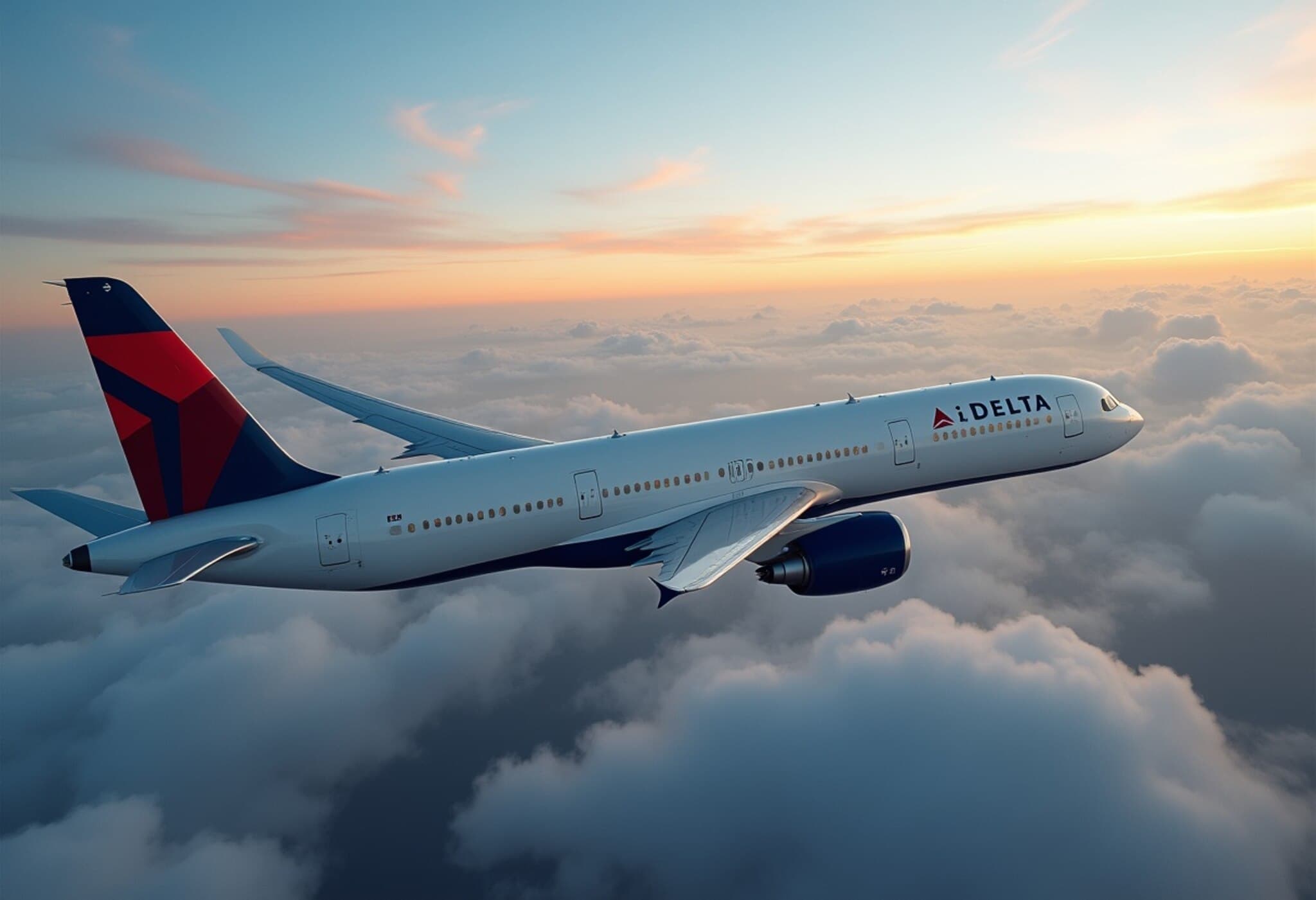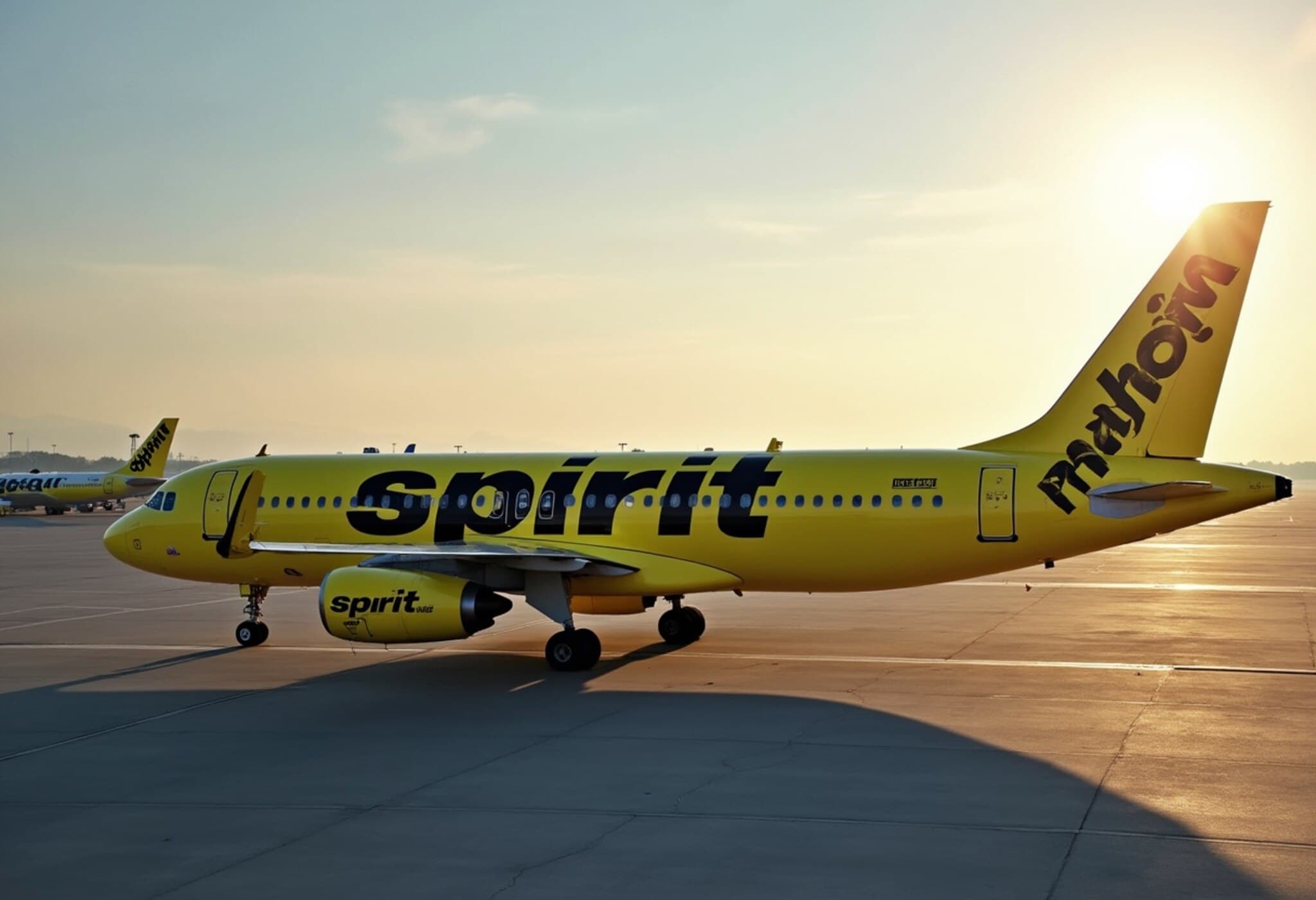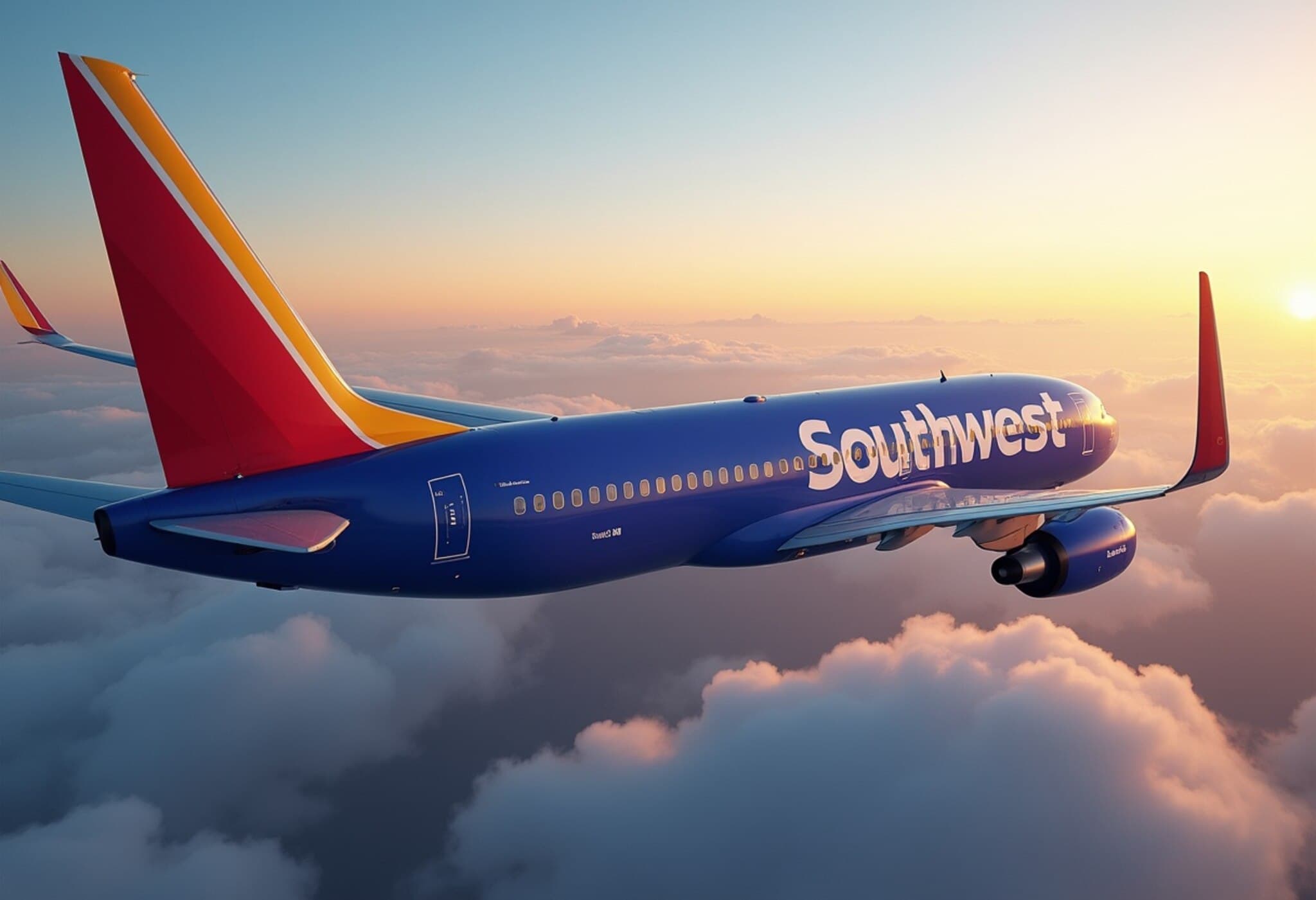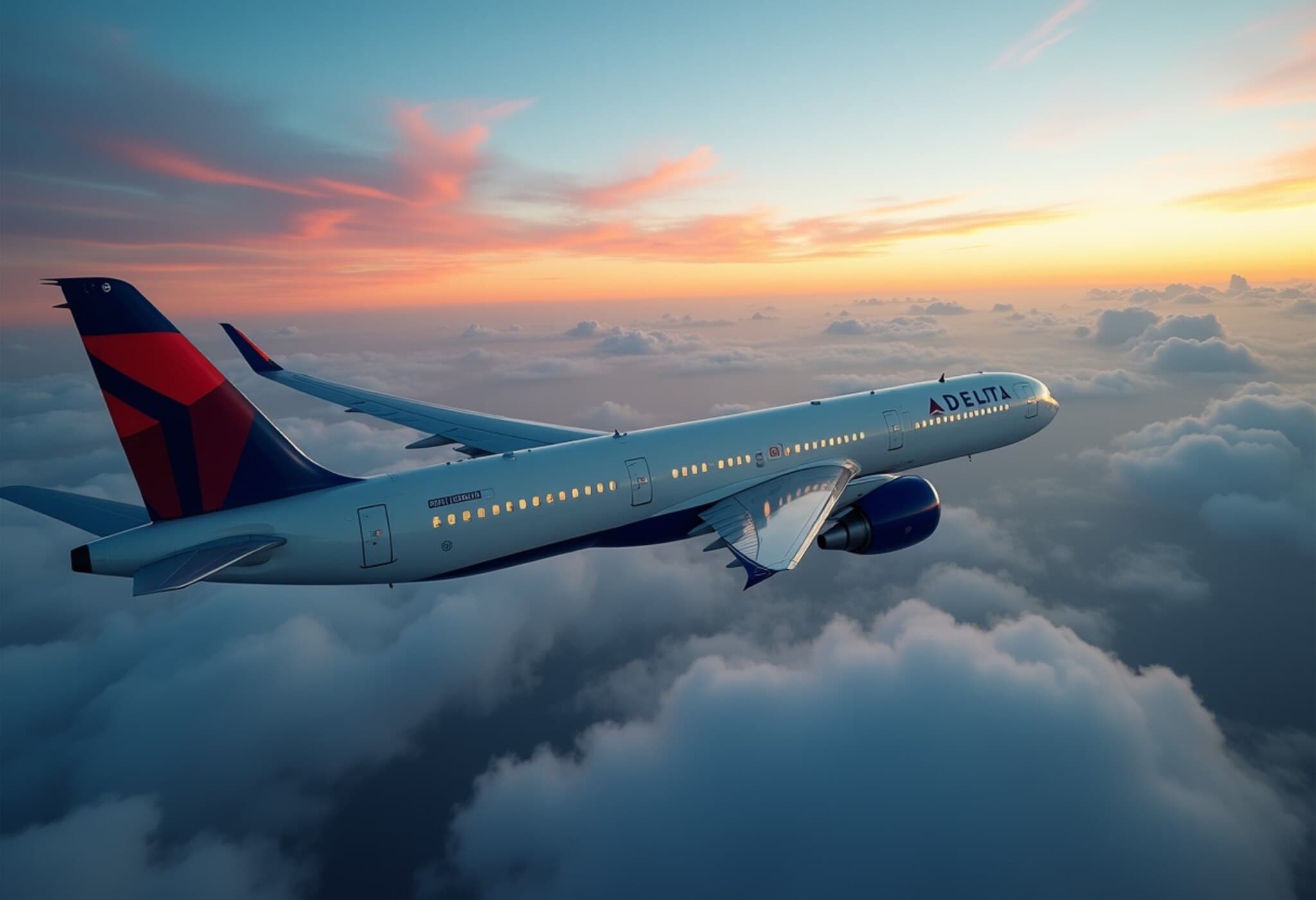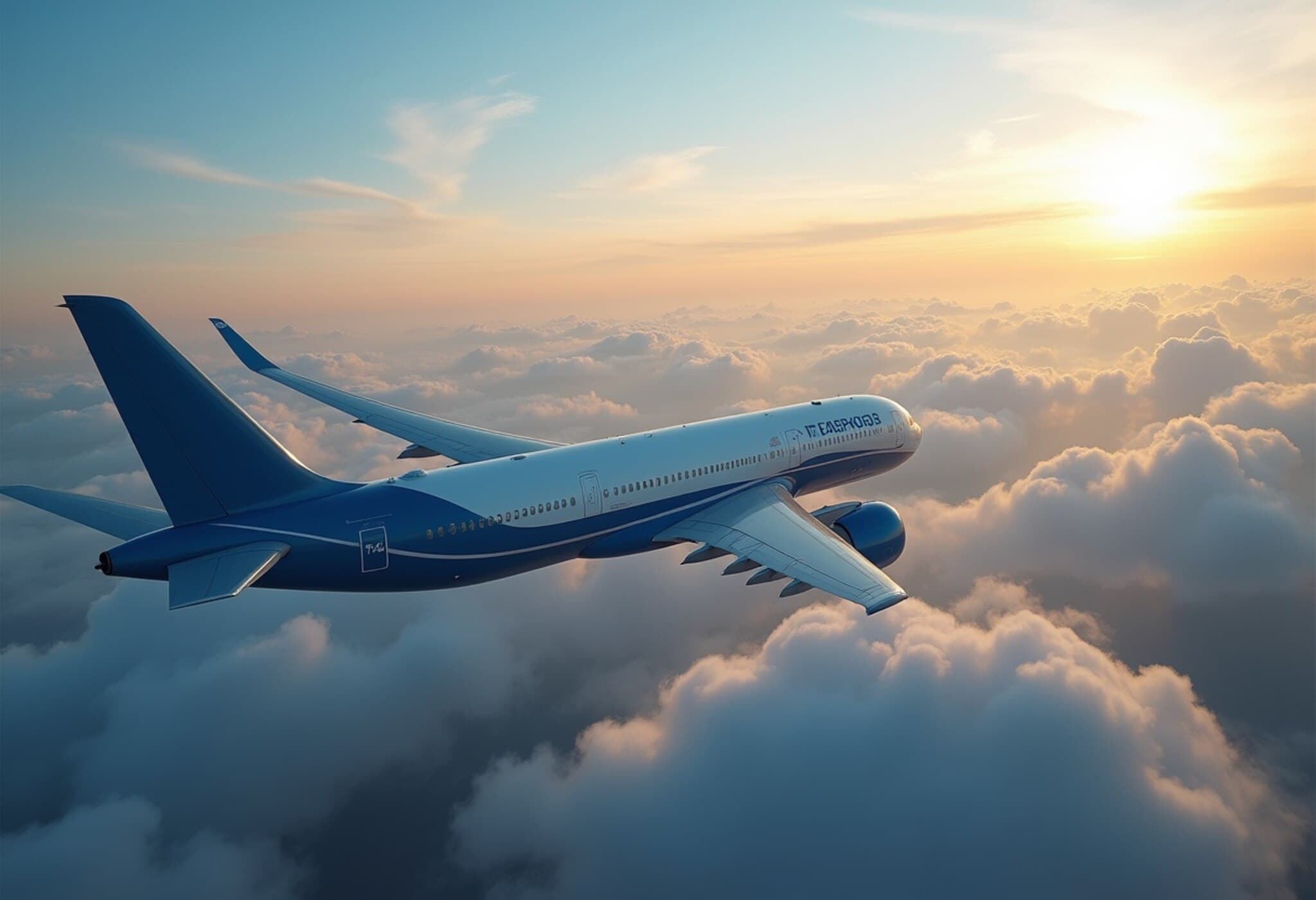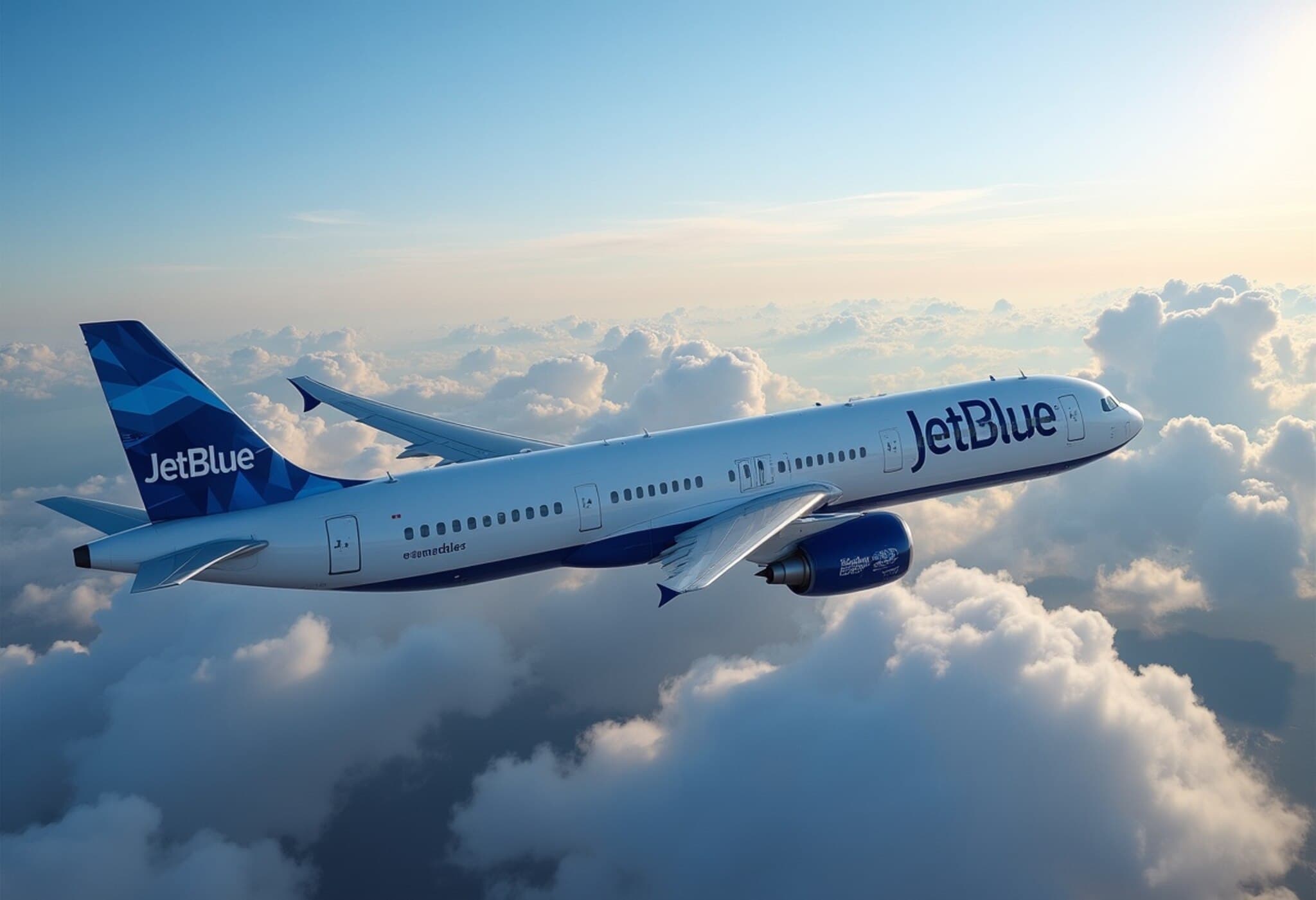Delta Air Lines Reinstates 2025 Profit Forecast, Shares Soar
Delta Air Lines experienced a significant 10% jump in its shares during premarket trading following a renewed profit outlook for 2025 and a stronger-than-expected summer travel forecast. The airline reported third-quarter earnings and revenue results that exceeded Wall Street expectations, highlighting stabilization in customer bookings despite prevailing uncertainties in the travel industry.
Revised 2025 Profit Expectations Reflect Industry Realities
Originally forecasting adjusted earnings per share (EPS) above $7.35 in January, Delta revised its full-year 2025 profit forecast downward to a range between $5.25 and $6.25 per share. This adjustment comes amid ongoing challenges such as softer-than-expected demand earlier in the year and a surplus of flight capacity across carriers.
CEO Ed Bastian candidly acknowledged these headwinds in a recent interview, emphasizing how travel booking patterns have evolved. "While people are still traveling, they've shifted their habits, often delaying flight bookings closer to departure dates," Bastian explained. This trend has required Delta to adapt its yield management strategies to an unpredictable landscape.
Q3 Results Exceed Expectations Despite Challenging Environment
- Adjusted earnings per share: $2.10 (vs. $2.05 expected)
- Adjusted revenue: $15.51 billion (versus $15.48 billion anticipated)
The airline's Q3 performance highlighted strong sales growth in premium travel segments such as first-class and Delta’s robust loyalty partnership, which generated $2 billion — a 10% increase year-over-year. Premium services have become a critical profit driver, contrasting with declining sales in the standard economy cabin, which fell 5% compared with last year.
Meanwhile, total revenue per seat mile—a key efficiency and profitability measure—declined by 4% over the quarter, reflecting broader pricing pressures in the U.S. airline industry.
Strategic Adjustments and Capacity Management
Delta is responding with "surgical" capacity cuts planned after the summer peak season, focusing on reducing flights outside high-demand periods without compromising core routes. Bastian emphasized the airline’s commitment to keeping its premium product offerings appealing and modern. "Whether it’s our Delta Sky Clubs or on-board amenities, we recognize these product cycles have matured and require continued investment to stay competitive," he noted.
Corporate Travel Recovery Lagging but Stable
Another pivotal segment—business travel—has stabilized compared to last year but hasn't met earlier growth expectations of 5% to 10%. This still reflects a cautiously optimistic trend as corporations gradually resume more frequent travel.
Contextual Insight: What This Means for the U.S. Airline Sector
Delta’s nuanced financial outlook offers a window into the broader U.S. airline industry's delicate balancing act between managing capacity and responding to shifting consumer behavior. The pandemic accelerated changes in booking patterns and travel priorities, with customers embracing last-minute travel bookings and heightened price sensitivity in economy cabins.
Moreover, the increasing reliance on premium passengers underlines a transformative phase for carriers as they invest in enhanced loyalty programs and luxury experiences to maintain revenues amid softer mass-market demand.
Key Questions Moving Forward
- Will the trend of delayed flight bookings persist, and how might this impact airline revenue management strategies?
- Can the airline industry sustainably balance capacity to avoid oversupply while meeting demand spikes during peak seasons?
- How will ongoing investments into premium products shape customer loyalty and profitability in a competitive post-pandemic market?
Delta’s Financial Snapshot Q2 2025
- Adjusted revenue: Nearly $15.51 billion, a 1% increase year-over-year
- Net income: $2.13 billion, or $3.27 per share, reflecting a 63% rise compared with Q2 2024
Looking Ahead
As the first major U.S. airline to report quarterly results, Delta’s disclosures provide important benchmarks for the sector. Investors and industry observers will keenly watch upcoming earnings from competitors to gauge whether Delta’s stabilization is sector-wide or unique.
Editor’s Note
Delta’s experience highlights the airline industry's evolving dynamics where passenger preferences and economic considerations continually reshape business models. While the rebound in premium travel offers hope, the softer demand and shifting booking habits serve as reminders that unpredictability remains. How airlines innovate in product offerings and capacity management will be crucial to thriving in this changing landscape.

